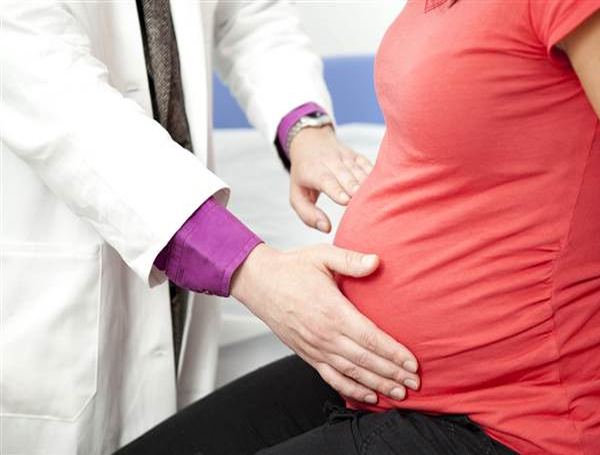
Iron deficiency is not an uncommon problem in pregnant women. Do you know why iron is essential? Iron is important for the formation of hemoglobin which is a protein present in red blood cells that transports oxygen throughout the body. It also helps in strengthening the immune system which is a great plus particularly for expecting mothers. Moreover, iron is an essential component of hemoglobin, which is a protein that supplies oxygen to the muscles, and collagen, which helps in bone building, and other connective tissues.
Now that you are aware of the fact that Iron is the most essential nutrient, there are many people who do not even consider iron a nutrient. In fact, iron deficiency is the most common nutritional deficiency among people, especially women, and specifically pregnant women.
Even if you are not pregnant and you are low on iron, your body will feel tired and weak. When you run low on iron durin pregnancy, it might elevate the risk of low birth weight baby and premature labor
If you are an expecting mother, you definitely shouldn’t miss out on iron. It has a number of benefits to keep you and your baby healthy. Scroll down to see some of the benefits of iron
Benefits of Iron during Pregnancy
The key benefits of consuming iron during pregnancy are:
- Extra Hemoglobin
An Additional amount of iron is needed during pregnancy because the blood produced by the body is double the amount for which you need extra hemoglobin and therefore the extra amount of iron.
- To Transport Oxygen
Another benefit of iron during pregnancy is that it aids in increasing the maternal volume of red blood cells so that it can transport oxygen to the growing baby.
- To Create Iron Stores
Additional iron is also required to create iron stores in the baby’s liver, which support the baby for the first six months of his life.
- For Baby’s Growth
As the baby grows, the requirement for iron increases, especially during the second and third trimesters of pregnancy
Iron deficiency during pregnancy can cause several pregnancy complications such as infant mortality, low birth weight baby, premature delivery. However, all these complications can be avoided by consuming sufficient amount of iron.
How much Iron do you need?
Now, how much iron is needed is a question yet to be answered. On a whole, a total amount of 800 mg of iron is required by your body during pregnancy. In which, the fetus and placenta need 300mg, and 500mg for mother’s hemoglobin. To cut it short, you require at least 27 to 30 mg of iron on a daily basis during pregnancy.
Types of Iron
The good news is that you can consume iron from a variety of natural resources which are readily available. Now there are two types of iron:
Heme Iron
This type of iron can be easily found in animal sources such as beef, red meat, chicken, fish and turkey. This type of iron is better and is easily absorbed by the body than the other type. Therefore, it is good to take more of heme foods during pregnancy.
Non-heme
This type of iron can easily be found in plant sources such as spinach, dried fruits, beans, lentils, whole grains, tofu and iron-fortified foods.
We have listed down some of the heme and non-heme iron foods so that you know which food you can include in your diet during pregnancy
Foods rich in heme iron
- Chicken, dark meat – 1.1mg
- Chicken breast meat – 1.1mg
- Chicken liver – 11mg
- Lean beef chuck steak – 3.2mg
- Beef liver – 5.2mg
- Turkey dark meat – 2mg
- Turkey breast meat – 1.4mg
- Light tuna, canned – 1.3mg
- Oysters – 5.7mg
- Lamb chop- 2.1 mg
- Sardine- 4 mg
Foods rich in non-heme iron:
- One cup ready-to-eat cereal fortified – 24mg
- One cup instant oatmeal (iron fortified) – 10mg
- One slice white or whole wheat bread – 5.7mg
- One cup soybeans, boiled – 8.8mg
- One cup chickpeas – 4.8mg
- One cup cooked lentils – 6.6mg
- One cup lima beans, cooked – 4.5mg
- One cup kidney beans, cooked – 5.2mg
- One cup pinto or black beans, cooked – 3.6mg
- One ounce pumpkin seeds, roasted – 4.2mg
- Half cup boiled spinach – 3.2mg
- Half cup raw tofu, firm – 3.4mg
- One-fourth cup raisins – 0.75mg
- One cup prune juice – 3mg
Iron Supplements
As the pregnancy progresses, your doctor will recommend some iron tablets to meet the daily requirement as you may not get enough iron through the diet. Additional supplements do not mean that you have iron deficiency, it is usually advised as a precautionary measure.
Side Effects of consuming too much Iron during pregnancy
The supplements work best if consumed on an empty stomach. Folic acid and iron can also be consumed with food if it causes an upset stomach. Consuming it with foods like whole grain bread, cereal, dairy products, eggs, tea, coffee can reduce its effect. When taking iron supplements you need to be careful that you take the supplement in appropriate dosages.
If you have skipped taking it the other day, do not double it the next day. Excessive consumption of iron through natural resources or supplements can cause different problems such as constipation, nausea, diarrhea, belly pain. It may also change the color of your stool, but this is not something to worry about. All you need is to be careful and consume in an appropriate manner. Consult your doctor before taking any supplements.






